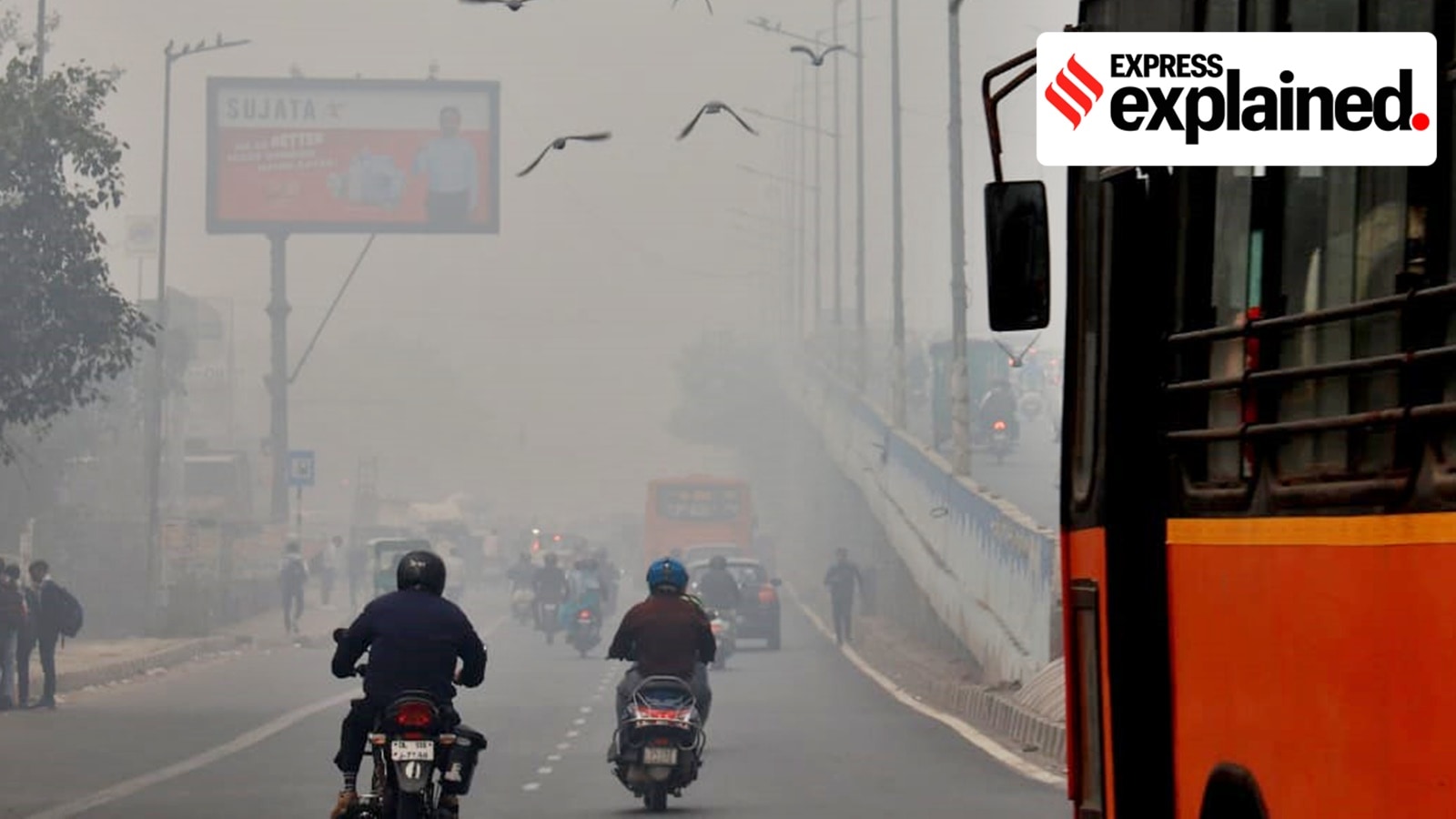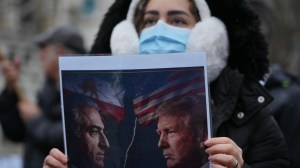Why GRAP stage IV has been announced now, what is allowed under it
Why has the highest stage of pollution-related restrictions been announced now for Delhi-NCR and what is banned under it? Is the AQI expected to improve in the next few days? We explain.
 Delhi AQI was in the 'severe' category on Monday. (Express photo by Amit Mehra)
Delhi AQI was in the 'severe' category on Monday. (Express photo by Amit Mehra)The Supreme Court questioned the Delhi government on Monday (November 18) over the “delay” in implementing stage IV of the Graded Response Action Plan (GRAP).
With smog and high levels of air pollution in Delhi-NCR on Sunday, the Commission for Air Quality Management (CAQM) issued directions for implementing stage IV from Monday morning onwards. However, the court said the CAQM subcommittee tasked with operationalising the GRAP was supposed “to take preemptive steps” before pollution levels approach the specific threshold.
The Air Quality Index (AQI) was 441 at 4 pm on Sunday and breached the 450 threshold at which GRAP IV is supposed to be implemented later in the evening. The apex court also said that stage IV measures should continue even if the AQI drops below 450 in Delhi-NCR.
What exactly is GRAP stage IV and what is permitted and banned under it? We explain.
What is GRAP?
GRAP is a set of emergency measures that kick in to prevent further deterioration of air quality once it reaches a certain threshold in the Delhi-NCR region. Approved by the Supreme Court in 2016 and notified in 2017, the plan was formulated after several meetings the Environment Pollution (Prevention and Control) Authority (EPCA) held with state government representatives and experts.
GRAP is incremental in nature and thus, when the air quality dips from ‘poor’ to ‘very poor,’ measures listed under both sections must be followed. Stage I of GRAP is activated when the AQI is in the ‘poor’ category (201 to 300), Stage II is when it’s in the ‘very poor’ category (301-400), Stage III is when the AQI is the ‘Severe’ category (401-450) and finally Stage IV is when it rises to the ‘Severe +’ category (more than 450).
Why has GRAP IV been imposed now?
The decision was based on a review of the air quality scenario and forecasts for meteorological conditions on Sunday. The official notification said the air quality is expected to remain in this adverse range owing to heavy fog, variable winds, and highly unfavourable meteorological and climatic conditions.
And what is allowed under GRAP IV?
GRAP IV says:
1. Stop entry of truck traffic into Delhi (except for trucks carrying essential commodities/ providing essential services). All LNG/CNG/Electric/BS- VI Diesel trucks shall, however, be permitted to enter Delhi.
2. Do not permit Light Commercial Vehicles (LCVs) registered outside Delhi, other than EVs/CNG/BS- VI diesel, to enter Delhi, except those carrying essential commodities/providing essential services.
3. Enforce a strict ban on plying of Delhi registered BS-IV and below diesel-operated Medium Goods Vehicles (MGVs) and Heavy Goods Vehicles (HGVs) in Delhi, except those carrying essential commodities/providing essential services.
4. Ban construction and demolition activities, as in the GRAP Stage-III, also for linear public projects such as highways, roads, flyovers, overbridges, power transmission, pipelines, telecommunications, etc.
5. NCR state governments and the Delhi government may take a decision on discontinuing physical classes even for classes VI-IX and class XI, and conduct lessons in an online mode.
6. NCR State governments/Delhi government to decide on allowing public, municipal and private offices to work on 50% strength and the rest to work from home.
7. Central Government may make appropriate decisions on permitting work from home for employees in central government offices.
8. State Governments may consider additional emergency measures like the closure of colleges/ educational institutions and closure of non-emergency commercial activities, permitting running of vehicles on odd-even basis of registration numbers etc.
“Further, citizens may be urged to adhere to the citizen charter and assist in the effective implementation of the GRAP measures aimed towards sustaining and improving the Air Quality in the Region,” it says. Children, the elderly and those with respiratory cardiovascular, cerebrovascular or other chronic diseases should avoid outdoor activities and stay indoors, as much as possible.
- 01
- 02
- 03
- 04
- 05






































